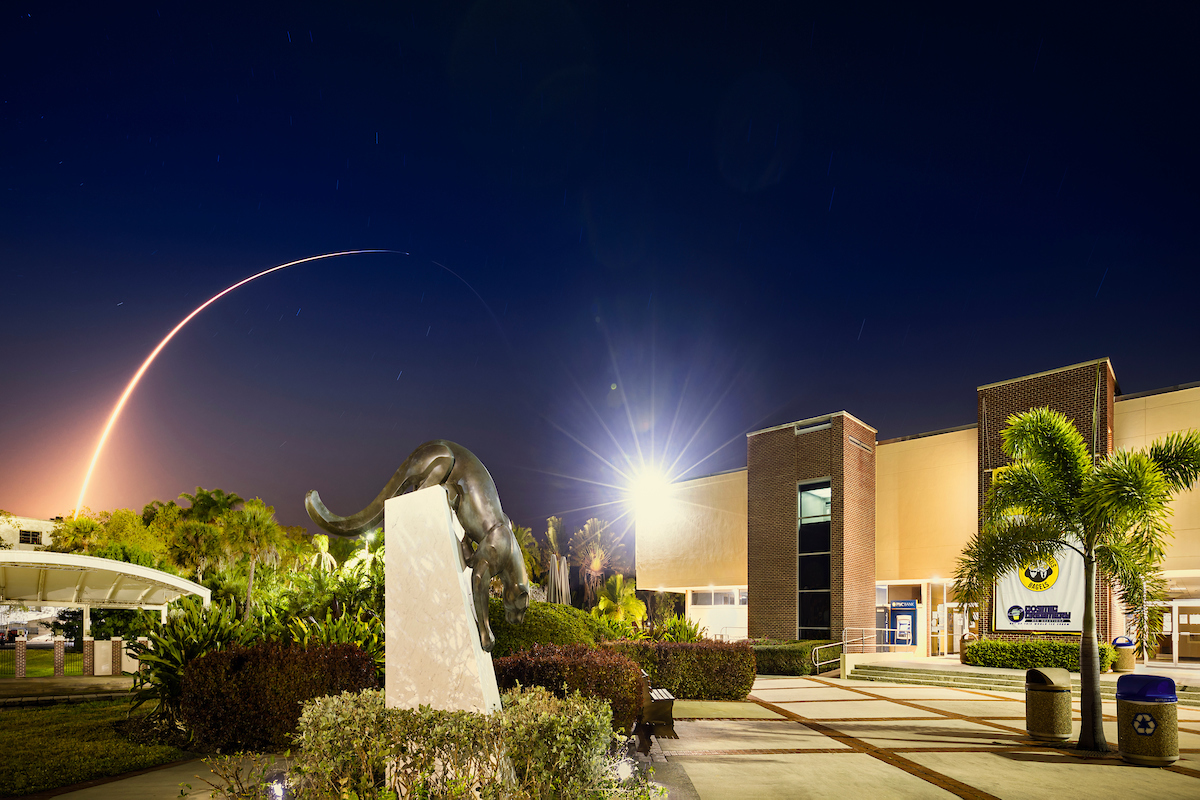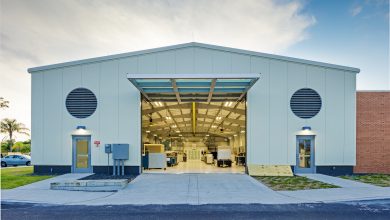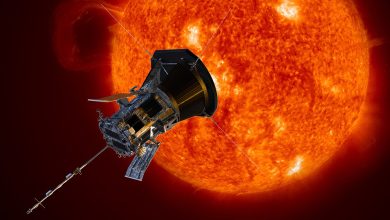Space Coast Impacts: Aerospace Industry Evolves with—and Due To—University Leaders
Florida Tech is helping position the Space Coast as an incubator and generator of talent and technology.
By Eric Wright
It was in the catalytic environment of the 1950s when America was exploring new frontiers and accomplishing what many believed impossible that Florida Tech’s visionary founder, Jerome P. Keuper, Ph.D., took on an equally challenging venture: creating an institution to generate the intellectual capital the space program demanded.
And so, he did.
But the aerospace industry looks a lot different today than it did over 60 years ago, when the Space Coast principally served as a launch site—the last step in a process that often begins in other parts of the country or the world.

What happened in the decade or so following the retirement of the space shuttle program was the result of potential seen by a few business and economic leaders who understood that something innovative and, yes, disruptive, would be needed to diversify the economy of the Space Coast. And quickly.
NASA leadership at Kennedy Space Center began by reconfiguring its facility as a multiuser spaceport. Brazilian executive jet company Embraer elected to locate its North American manufacturing facility in Melbourne.
Then, like a series of dominoes, SpaceX and Blue Origin started operations here, the latter announcing plans for a major production facility. Boeing, Northrop Grumman Corp. and Lockheed Martin expanded operations, and foreign-owned companies, like Thales and Leonardo DRS, grew in the area.
And as the Space Coast aerospace industry has evolved, so has Florida Tech.
The university has become a hub for advanced research, proven to be industry-changing and conducted by some of the world’s most sought-after engineers.
Like Daniel Kirk, Ph.D., interim dean of the College of Engineering and Science.
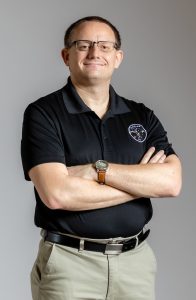
Dr. Kirk was already enamored with the beauty and technological wonder of flight before he entered grade school. It became a passion that, decades later, still conjures amazement.
“I think the potential for Central Florida and the Space Coast to be the epicenter of intellectual capital for space exploration and the technologies that are derived from that—such as advanced manufacturing, materials and composites, digital 3D printing and the like—is very real. And Florida Tech … continues to make investments that will be an attractor and a catalyst for others to invest here, as well,” he says.
Aerospace, physics and space sciences associate professor Markus Wilde, Ph.D., earned his doctorate from the prestigious Technical University Munich.
Dr. Wilde’s courses include Space Mission Engineering and Space Vehicle Controls, but the course that is garnering him international recognition is Dynamics and Robotics of Spacecraft Rendezvous and Capture.
Popularized in the 2013 film “Gravity,” starring Sandra Bullock as an asteroid-dodging space commuter, the need to maneuver around space debris is a real concern, Dr. Wilde says.
He also spends time considering conceptual capabilities, such as asteroid mining or near-Earth object defense. Yes, think of films like “Armageddon” and “Deep Impact.”
To build the only flight test engineering program offered outside the U.S. military, Florida Tech recruited another industry leader, Brian Kish, Ph.D., who earned his master’s and doctoral degrees in aeronautical engineering from the Air Force Institute of Technology.
We take students out of the classroom and into the sky to hear, feel and see their final destination of real-world experience.
Dr. Brian Kish, associate professor, aerospace, physics and space sciences
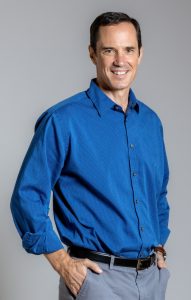
What, exactly, is “flight test engineering”?
“It involves performance evaluation of existing aircraft rather than designing aircraft to meet performance specifications,” Dr. Kish says. “We take students out of the classroom and into the sky to hear, feel and see their final destination of real-world experience.”
Both Drs. Wilde and Kish are also involved in helping the FAA develop policies to govern unmanned and, eventually, manned drones—an area that is developing so quickly that regulators are playing catch-up.
In fact, Florida Tech is scheduled to soon take delivery on the first fully electric plane in the United States.
Florida Tech’s ability to attract these leading researchers and academics to its faculty is, in part, how the university is able to produce such outstanding, sought-after graduates.
“I’m very lucky—I’m really drawing the highest talents in aerospace engineering into [my] lab because they want to work on these things,” Dr. Wilde says. “Here, they learn about a lot of topics outside of aerospace engineering—they learn stuff about robotics; they learn stuff about proper programming; they learn how to solder things without burning their fingers off. It’s a really good environment because they learn so much more than just their classical syllabus topics.”
While named for its aerospace roots, the Space Coast has become an incubator and generator of talent and technology that transcends the space industry. The “Space Coast Impacts” series highlights how our aerospace, marine, cyber and biomedical researchers continue to not only follow but also to lead our community on this profound trajectory.

